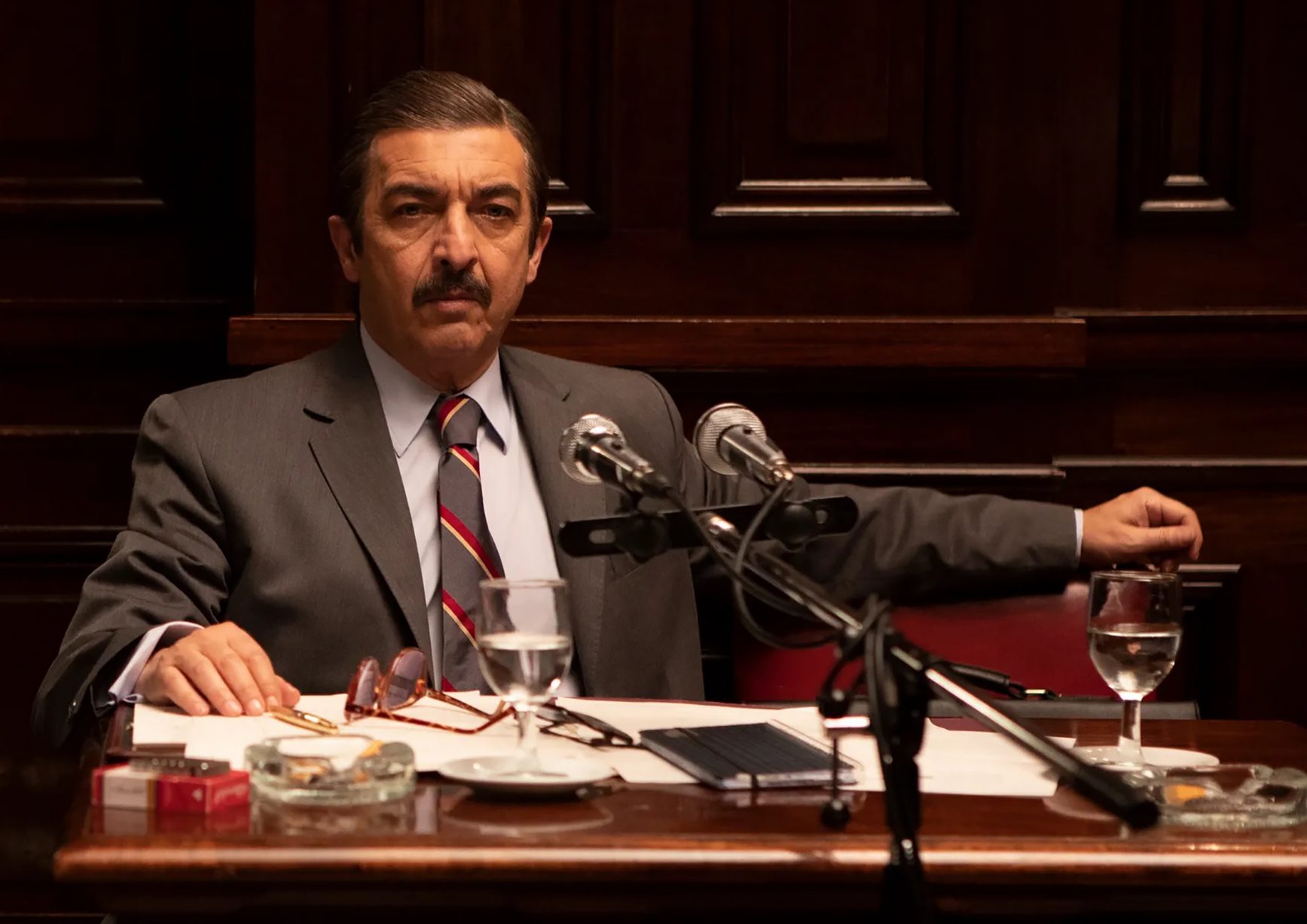
- Festivals
“Argentina, 1985” – A Trip Back in Time
From the moment it had its world premiere at the Venice Film Festival, Argentina, 1985, the new film by Santiago Mitre starring Ricardo Darín and Peter Lanzani, has been a crowd pleaser, regardless of where it has been screened. It was not a surprise that it won the Audience Award at the San Sebastián Film Festival, or that it has become an instant hit in its own country, where lines form regularly around the block to enter the cinemas, a rarity in these days of watching content on platforms at home.
The film works so well for two reasons: it allows the viewer to join the character played by Darin, district attorney Julio Strassera, on his improbable quest to send powerful former army chiefs to jail for their horrendous crimes during the military dictatorship that ruled Argentina from 1976 to 1983. But it also manages to explain in very simple terms the peculiar circumstances under which the country was living in 1985 and why it was so complicated to form a legal team that could successfully unmask a systematic plan to kidnap, torture, and kill anybody who opposed the country’s regime.
Still, for a 23-year-old like me who lived through the events, the film has an additional depth that people from other countries or generations won’t be able to appreciate. For starters, the production design is so meticulous in the way it has reconstructed the era that watching it becomes a trip back in time for anyone who lived in the 80s in Buenos Aires. The clothing, the cars, and the way apartments looked back then – even the typewriters and the public phone cabins – were a perfect replica. Meanwhile, the way of speaking in Argentina has changed in the almost 40 years that have passed – that’s also reflected in the script.
Most importantly, the film does a good job of explaining the deep divide the Argentine society was living in these days, and the awakening many people were experiencing with the revelations about the horrors under which some people lived in these dark years. Not everyone in the 70s knew about the “desaparecidos,” or the concentration camps the dictatorship had created in several cities. Many only learned of them when several of Argentina’s most renowned citizens, including famed writer Ernesto Sabato and cardiac surgeon Rene Favaloro, who was the first to develop the coronary artery bypass surgery method, created a report in 1984 titled “Nunca Mas” (Never Again). It detailed the testimonies of both the survivors and the relatives of the kidnapped who didn’t come back.
In that sense, the character of the mother of assistant district attorney Luis Moreno Ocampo, played by Susana Pampín, represents that part of the local society that for years bought the advertising campaign of the dictatorship, that said that “Argentines are human and right,” and implied that the serious accusations of Amnesty International and other human rights organizations were just part of an ideological war created by the left against the country.
The most important part to understand, though, about the exact political moment the film presents, is how weak the nascent democracy was and how then-president Raúl Alfonsín had to walk on a tightrope to avoid ending his career by a military coup as had many of his predecessors. For many decades before Alfonsín won the first democratic election since 1975, Argentina had a long tradition of military presidents who stayed in power for many more years than their democratically elected counterparts. Even if the Junta had conceded a return to democracy after their catastrophic defeat in the Falklands War in 1982, the military, united in a pact of silence about the fate of the kidnapped, were quietly watching Alfonsín.
The film is appropriately called Argentina, 1985, because a year after Strassera was able to send the leaders of the coup of 1976 to jail, a law was passed in Congress that stopped most legal causes against them and anybody under their command. That was not enough to stop a group of officers, known as “carapintadas” – so-called because they made public demands with their faces painted for combat – from starting a coup in 1987 that came close to overthrowing Alfonsín. Many more laws restricting judgment and military insurrections followed, and real justice was not served until 2005, when the Argentine Supreme Court declared that any law that stopped these causes was unconstitutional.
In that sense, the film is very clever in capturing that brief special moment in a young democracy, explaining quickly just before the credits that many legal troubles followed. Jorge Rafael Videla, the most infamous of the generals sentenced in 1985, went free in 1990 and only returned to jail for good in 2008, passing away in 2013 at the Marcos Paz prison. Leopoldo Fortunato Galtieri, the president who initiated the Falkland War just days after a big popular rebellion, spent only four years behind bars: he received a pardon from president Carlos Menem in 1989 and died before his judgment could be reassessed.